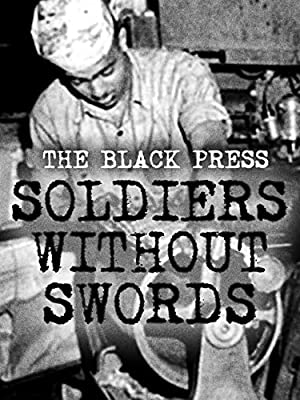
The Black Press: Soldiers Without Swords 1998
Distributed by California Newsreel, Order Dept., PO Box 2284, South Burlington, VT 05407; 877-811-7495 (toll free)
Produced by Stanley Nelson
Directed by Stanley Nelson
VHS, color, 86 min.
Adult
History, African American Studies, Journalism
Date Entered: 11/09/2018
ALA Notable: ALA.gif
Reviewed by Mary Beth Weber, Technical and Automated Services, Rutgers University Libraries
Stanley Nelson's documentary film The Black Press: Soldiers Without Swords traces the development and growth of black presses starting in the late 1800s to modern times. The film demonstrates how black presses functioned as advocates, and helped the African American community to report on news that was often excluded from white presses, such as birth/death notices, marriage announcements, and news of soldiers fighting in wars. The black press gave the American black community a voice. Readership of these papers was not limited to the black population and they played a vital to the role in advocating for social change.
The history of several notable black newspapers, such as the North Star, the California Eagle, and the Chicago Defender are covered in the film. Important literary figures, including Ida B. Wells, Frederick Douglass, and Robert S. Abbot are featured in the film. Black reporters are interviewed, and discuss their role in various black presses and the reporting of news. Their struggles and experiences highlight the difficulties they encountered, and relate how their experiences helped to benefit the African American community as well as future generations of reporters and writers. Interviews with historians are also included, and lend important background information on the evolution of the black press.
Archival footage, direct quotes taken from black newspapers, and interviews with surviving reporters help to make a very powerful film. The technical quality of the film is superior, and features color shots and older black and white stills. Joe Morton provides narration, and voice overs are used when quoting historical figures. The various sections of the film are preceded by headings that signal a different stage in the development of the black press.
This film is highly recommended for a variety of library collections. It would be beneficial for high school audiences as well as for college and university level. Nelson's film provides a thorough history of a little known, but very important, part of African American history. The film ends with a discussion of the decline of the black press as traditionally white presses began to include news about blacks. As a result, many blacks made the move to these papers. The film closes with a comment on the continuing importance of the black press in modern times.